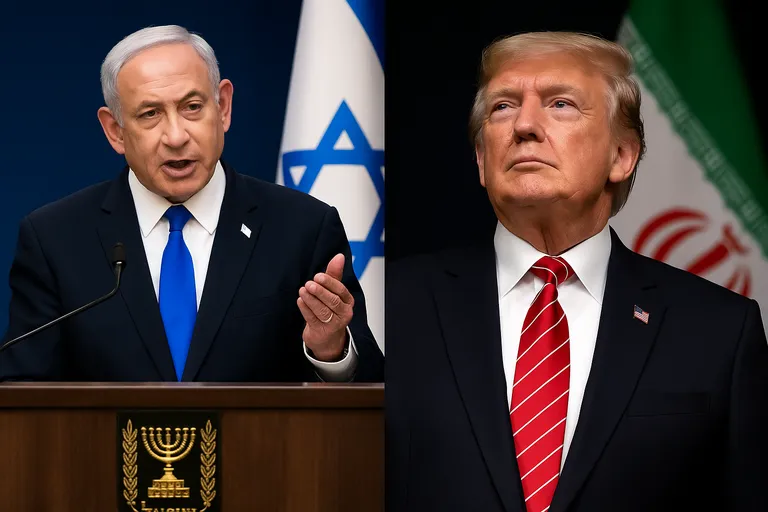Date: June 22, 2025
As Israeli Prime Minister Benjamin Netanyahu took the podium this morning, the tone was markedly different. Rather than addressing his fellow citizens in Hebrew, he turned to the world — and most importantly, to U.S. President Donald Trump — speaking directly in English.
Netanyahu’s opening remarks were not just about the latest military developments in the escalating Middle East conflict. Instead, they were an open tribute to Trump following a bold and controversial move: the United States' military strike on Iranian nuclear sites.
A Long-Awaited Ally
For years, Netanyahu has made no secret of his deep concern about Iran’s nuclear ambitions. His political legacy has been significantly shaped by a relentless campaign warning of the existential threat Iran poses to Israel.
While past U.S. administrations have weighed diplomatic options, Netanyahu repeatedly argued that only decisive American military intervention could halt Iran’s nuclear program.
A Historic Shift in U.S. Policy
President Trump, who had long resisted foreign military engagements and built his platform on withdrawing from conflicts abroad, now appears to have made a significant pivot. The airstrikes mark a stark departure from his previous non-interventionist stance, pleasing Israeli leadership and surprising global analysts.
Trump’s decision comes amid heightened regional tensions, and signals a major escalation in the already volatile relationship between Iran, Israel, and the United States. Netanyahu called the move "historic," asserting that the U.S. has not only changed policy — it has “changed history.”
What Comes Next?
The world now watches Tehran. How will Iran respond to this provocation? Will it retaliate directly, escalate covert operations, or pursue a different strategy entirely?
Diplomatic channels are on high alert as the international community braces for Iran’s next move. Meanwhile, questions grow louder about the broader implications of this conflict and how far both nations are willing to go.
As of now, what’s clear is this: the U.S. has taken a side more aggressively than ever before — and the geopolitical chessboard in the Middle East has been irrevocably shifted.
By ✍️ Tammy Castillo - MicuPost Team
Sources:



